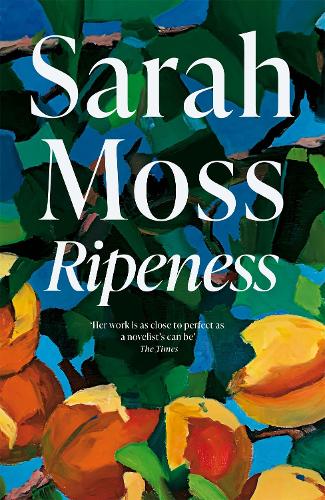
 I was delighted when Sarah Moss’s Ripeness popped through my letter box. It’s the eighth book by her I’ve reviewed on this blog, starting way back in 2013 with her Icelandic memoir, Names for the Sea. This new one sees a woman in her seventies remembering the months she spent in Italy as a seventeen-year-old in the 1960s.
I was delighted when Sarah Moss’s Ripeness popped through my letter box. It’s the eighth book by her I’ve reviewed on this blog, starting way back in 2013 with her Icelandic memoir, Names for the Sea. This new one sees a woman in her seventies remembering the months she spent in Italy as a seventeen-year-old in the 1960s.
Sea pinks ruffle along the roadside, and the light of the sea shifts as if a stagehand in the gods has changed it.
Edith is the child of an unconventional marriage between a Derbyshire hill farmer and a refugee whose family disappeared in the Holocaust. She’s a bright child, largely raised by her practical grandmother, her mother an intermittent presence as she travels Europe hoping to find some trace of her family. She barely knew her elder sister yet it is Edith who her mother insists must attend Lydia at the Italian villa in the Lakes where she’s holed up, heavily pregnant and angry at this interruption in her ballet career. The months that follow will be formative for Edith who grows from a naïve, young woman into one who will make her way confidently across Europe, taking up her place at Oxford. Since then, her life has been more conventional than might have been expected – marriage, a child, a career in further education – but now she’s divorced and settled in the west of Ireland, belonging yet not belonging, in charge of her own life yet not entirely comfortable in her autonomy. Her best friend’s discovery of a half-sibling brings to mind the child that Lydia had to give up over fifty years ago.
She knows the friendliness isn’t friendship, she knows she’ll never be a local anywhere now, but isn’t it better to live with people whose default is friendliness, in a country where kindness, the performance of kindness, is a way of life whether people actually feel like it or not?
Alternating with the present day, Edith’s narrative of her time in Italy is addressed to Lydia’s child, written for him should he ever contact her own son. It’s a structure that works well, Edith’s memories of that time contrasting with the woman she’s become, relishing her life alone, a conscious outsider yet involved. Moss explores themes of belonging, identity, autonomy, family, motherhood and community through Edith’s story, her background and the backgrounds of those around her. Edith thanks the Ukrainian dentist, not allowed to practice in Ireland, who serves her cake in the local café, remembering that her mother’s ancestors fled Ukrainian pogroms; her kind, generous best friend is offended by Edith’s reaction to the villagers’ demonstration against housing refugees close by; Edith ponders her own uneasiness with her privilege, her status as a blow-in and an English one, at that, with all its historical associations. I enjoyed this powerful, reflective novel which has the added bonus of some vividly evocative descriptions of the natural world woven through it.
Laura wasn’t quite as taken as me. You can read her review here.
Picador Books: London 9781529035490 304 pages Hardback







